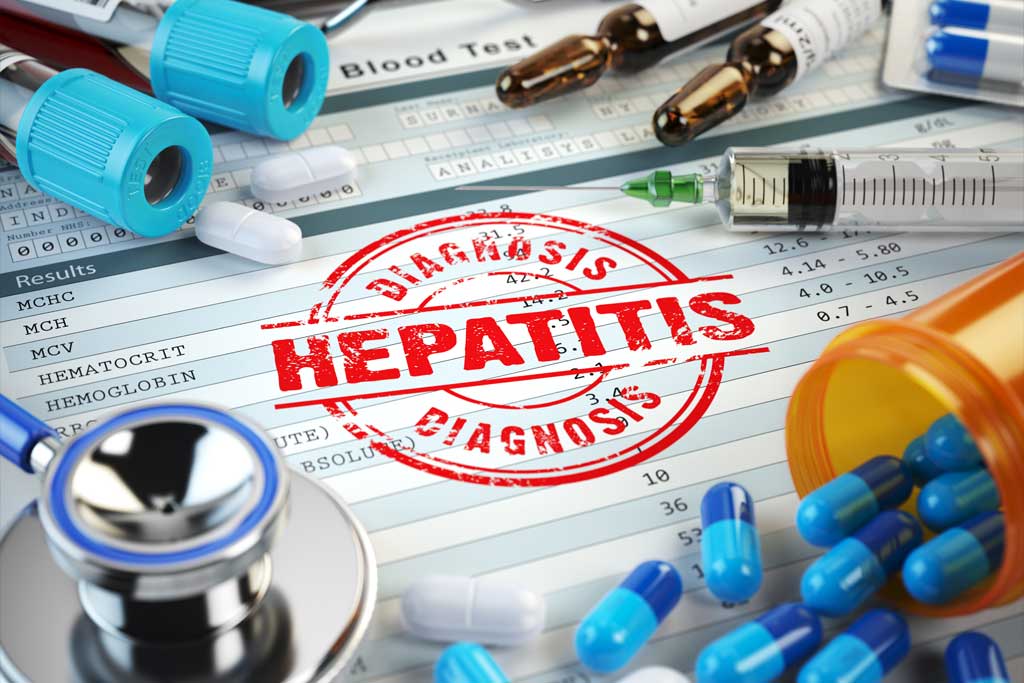Hepatitis B is a viral infection that affects the liver. This virus can manifest itself initially as an acute infection, but if left unnoticed and untreated, acute hepatitis B can become a chronic infection. A chronic infection can cause serious liver damage and require medical attention.
Many acute hepatitis B infections do not require medical attention and pass with limited time. The signs of acute Hepatitis B infection include abdominal pain, fever, appetite loss, fatigue, dark-colored urine, joint pain, nausea, vomiting, and jaundice.
How is it diagnosed?
Traditionally, doctors diagnosed it with a needle biopsy of the liver. Here the doctor inserted a thin needle through the skin and into the liver. The doctor then removed a small sample of a patient’s liver that could be evaluated under the microscope to determine if a patient was infected.
The latest technology, however, is a non-invasive scanning technology that can evaluate one-hundred times the amount of liver that the previous procedure could evaluate.
This technology called FibroScan emits small pulses of energy. Using this energy, the stiffness of the liver can be determined, thus determining the amount of damage that has been physically done to the liver by the disease process. Not only does this technology examine a greater amount of the liver, but it also does so non-invasively.
What people are most at-risk for it?
There are groups of people that are more prone to a hepatitis B infection. Considering this disease is transmitted by contact with bodily fluids, people that have an increased risk of contact with bodily fluids of multiple people are more at risk for infection.
This list includes those who live with someone that has hepatitis B, have had many sexual partners, have had partners of the same sex, have a history of sexually transmitted diseases, are HIV or hepatitis C positive, are on kidney dialysis, are on immunosuppressive therapy, and who take illegal injectable drugs.
How is it treated and managed?
There are three treatment and management situations for hepatitis B.
The first of these is the prevention of hepatitis B after exposure. This is a time-sensitive situation. If you know that you have been exposed to hepatitis B and are not sure if you have been vaccinated against the disease, then you need to contact your doctor immediately. Within the first 12 hours, you need to be given an injection of immunoglobulin, or antibody. This is just a short-term fix, however. You should also be immunized at the same time.
In the second situation, this is the treatment for acute hepatitis B. Your doctor needs to determine whether or not you have an acute or chronic infection. Many cases of acute hepatitis B infection may not require any treatment other than rest, proper nutrition, and plenty of fluids to aid in your healing and recovery. In more severe cases, antiviral medications and a stay in the hospital may be required to aid in recovery.
The third situation is the most concerning. This is a chronic hepatitis B infection, and most patients will need treatment for the rest of their lives. Available treatments include oral medications, injectable medications, and liver transplant.
Oral medications are antiviral medications that help to slow the virus and prevent damage to the liver. Injectable medications are typically a drug called interferon. This drug is typically used in younger patients that want to avoid long-term treatment. The last option for a chronic hepatitis B patient is a liver transplant. Normally, this is taken from a deceased patient. However, a portion of an existing, healthy liver from a live patient will also suffice. This is done to remove and replace the existing, damaged liver in a chronic hepatitis B patient.
Can it be prevented?
There are many ways to prevent it. The best way to prevent it is with a vaccine. This is an inexpensive and effective way to prevent the disease.
There are, however, other ways to prevent it that do not involve a vaccine. These methods lie mainly in educational methods. You must ask sexual partners about their sexual history, including vaccinations, recent testing, and past infections. You must always use protective measures when coming into contact with bodily fluids. This may include the use of latex gloves, masks, condoms, and dental dams, depending on the circumstance.
Avoiding drug use will also decrease your susceptibility to hepatitis B. Finally, if you are traveling internationally, you should check to see if the area where you are traveling has a high incidence of hepatitis B.
For more information
If you do not have a primary care physician and believe you are at risk for hepatitis B, then contact ARcare today! We are ready to help you!
